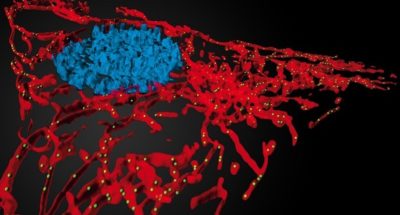A recent study by researchers from Hunter College in New York has found that humans and other primates who burn 50 percent fewer calories each day than other mammals have longer lives because of their curiously slow metabolisms.
The scientists, who embarked on the study to establish the effect that burning fewer calories may have also explained why primates grow up so slowly; published their findings in the journal Proceedings of the National Academy of Sciences.
Experts define metabolism as the chemical processes that occur within a living organism in order to maintain life.
Though our pet dogs, cats or hamsters progress to adulthood much faster than we do, reproduce at a faster rate and sadly, die long before we will, humans and other primates – such as apes, monkeys and lemurs – have relatively long childhoods, do not reproduce as frequently and live longer lives.
The researchers noted that the slow pace of the primate life has baffled biologists, as the underlying reasons for it were unclear.

According to Herman Pontzer, lead author of the study and anthropologist: “Humans, chimpanzees, baboons, and other primates expend only half the calories we’d expect for a mammal. To put that in perspective, a human – even someone with a very physically active lifestyle – would need to run a marathon each day just to approach the average daily energy expenditure of a mammal their size.”
In order to better understand, the researchers examined 17 different primate species in zoos and sanctuaries, as well as in the wild, to assess their daily energy expenditure and determine whether their slow pace of life could be attributed to a slow metabolism.
They employed a technique called “doubly labeled water,” which is non-invasive and tracks the body’s production of carbon dioxide. Using this technique, they were able to measure the calories that the primates burned for duration of 10 days.
After establishing daily expenditure rates in primates, the team compared them with the rates of other mammals.
The analysis revealed that this reduction in primates’ metabolic rate explains their slow pace of life, and they added that energy expenditure can contribute to aging – as all organisms need energy to grow and reproduce.
“The environmental conditions favouring reduced energy expenditures may hold a key to understanding why primates, including humans, evolved this slower pace of life,” says David Raichlen, co-author of the study and anthropologist from the University of Arizona.
Though it seems logical that primates in captivity may not expend as many calories daily as those in the wild, the researchers found this is not the case.
The captive primates expended just as many calories each day as those in the wild, which the team says may suggest that physical activity contributes less to total energy expenditure than we think.
Co-author Steve Ross, director of the Center for the Study and Conservation of Apes at Chicago’s Lincoln Park Zoo, says that the similarities in daily energy expenditures between wild and captive primates “demonstrates the depth of research potential” for zoo and sanctuary settings.
He suggested that these settings “represent an alternative to traditional laboratory-based investigations and emphasised the importance of studying animals in more naturalistic conditions.”
The findings, reported on Medical News Today, revealed that daily energy expenditure may uncover how our bodies develop and age – have important implications for understanding health and life span in humans.
The researchers said unfolding the relationship between physical activity and daily energy expenditure may help us better understand metabolic diseases and obesity.
Herman Pontzer said they are already conducting more detailed research on the subject, adding: “Humans live longer than other apes, and tend to carry more body fat. Understanding how human metabolism compares to our closest relatives will help us understand how our bodies evolved, and how to keep them healthy.”










